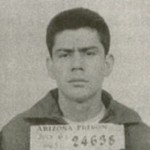Indigent Defense and the Private Bar Rate Debate
 The Wisconsin State Public Defender (SPD) currently pays $40 per hour to private bar attorneys who represent indigent citizens accused of crimes. This rate has been unchanged for decades, and lawyers are lobbying for an increase. However, aside from horrible timing—this latest plea for more money coincides with Wisconsin’s $2.5 billion budget deficit—some of the arguments in support of the rate increase aren’t terribly persuasive, and should be abandoned. But more significantly, the fact that lawyers have to make these arguments in the first place is merely a symptom of a larger problem: We live in a culture that misunderstands and undervalues our Constitutional rights.
The Wisconsin State Public Defender (SPD) currently pays $40 per hour to private bar attorneys who represent indigent citizens accused of crimes. This rate has been unchanged for decades, and lawyers are lobbying for an increase. However, aside from horrible timing—this latest plea for more money coincides with Wisconsin’s $2.5 billion budget deficit—some of the arguments in support of the rate increase aren’t terribly persuasive, and should be abandoned. But more significantly, the fact that lawyers have to make these arguments in the first place is merely a symptom of a larger problem: We live in a culture that misunderstands and undervalues our Constitutional rights.
But first, let’s review and grade a few of the more popular arguments:

